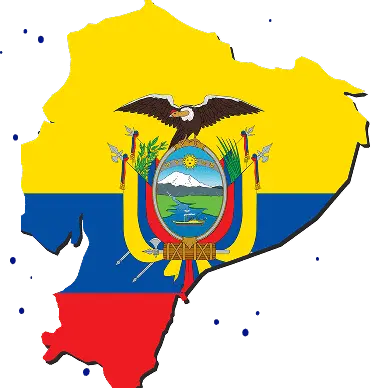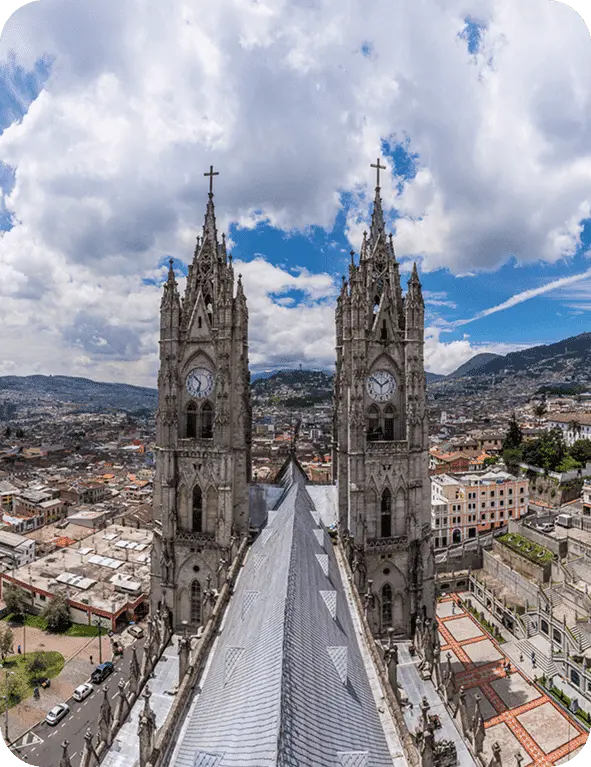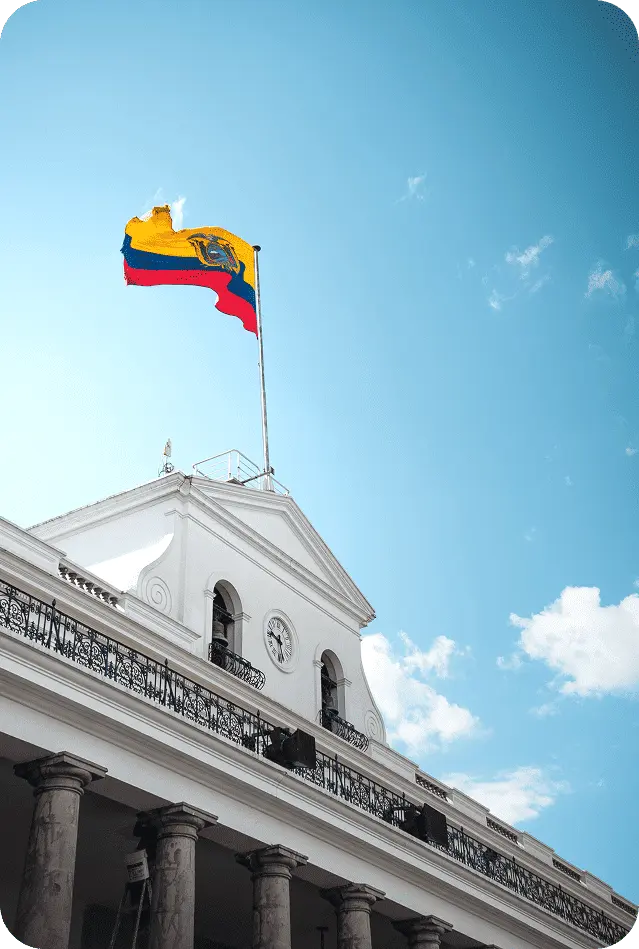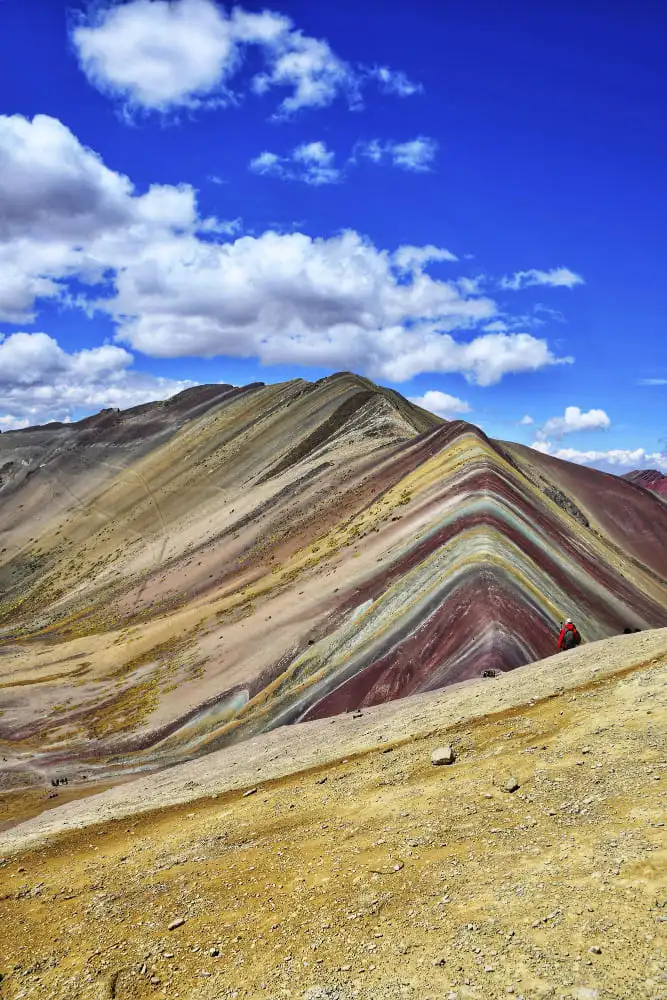Population
GDP (per capital)
Visa-Free Countries
GDP (purchasing power parity)
-
Immigration to Ecuador through Investment (2025 Edition)
- Ecuador has emerged as one of the most attractive destinations for investment-based immigration, offering a unique combination of affordability, breathtaking biodiversity, and a welcoming culture. Beyond its lifestyle advantages, the country provides several structured pathways to residency, including real estate acquisitions, eco-farm initiatives, certificates of deposit, and business investments. In 2025, updated regulations have made the process more accessible, with the minimum investment threshold set at around US $45,000–47,000, alongside new flexibilities for investor visa holders and more streamlined procedures, making Ecuador an increasingly compelling choice for those seeking both opportunity and stability abroad.
- Main Industries
- Agriculture and Agribusiness
- Oil and Gas Extraction
- Fishing and Aquaculture
- Mining and Mineral Production
- Food and Beverage Processing
- Tourism and Ecotourism

(UTC-5)
283,561 km2
USD
Quito
Spanish (official)
indigenous languages (e.g., Quechua, Shuar)
Ecuador’s Investor Visa: Core Overview
Ecuador’s Investor Visa: Core Overview
The Residencia Temporal Inversionista, or Investor Visa, is one of the most attractive routes for foreigners seeking residency in Ecuador. It grants a two-year temporary residence status to individuals who commit a qualifying level of investment in the country’s financial or economic sectors. Beyond offering legal residency, this pathway also allows investors to diversify their assets, benefit from Ecuador’s relatively low cost of living, and position themselves for long-term settlement.
Eligible Investment Options
- Bank Certificate of Deposit (CD or Póliza)
- Involves placing funds into a fixed-term deposit at an Ecuadorian bank for at least two years.
- The deposit must meet or exceed the minimum investment threshold.
- Investors typically receive modest interest returns while their funds remain secure within the local financial system.
- Real Estate
- Purchasing property with a registered municipal value equal to or above the threshold qualifies for the visa.
- Popular among those planning to reside in Ecuador, as it combines immigration benefits with tangible ownership of land or housing.
- Valuation is based on the official tax value (which may differ from market price), so professional verification is recommended.
- Business Investment or Shares
- Applicants may invest directly into an Ecuadorian company, whether through equity shares or by founding a new enterprise.
- While general guidance sets the threshold at around US $45,000–47,000, some opportunities may start at US $25,000 if structured under special provisions.
- This route is suitable for those wishing to integrate more actively into Ecuador’s economic landscape.
Investment Thresholds
- The requirement is based on 100 times Ecuador’s monthly minimum wage.
- As of 2025, with the minimum wage set at US $470, the threshold stands at approximately US $45,000–47,000.
- The exact amount may vary depending on the type of investment and its official valuation.
Key Advantages
- Provides a straightforward legal pathway to residency.
- Offers flexibility in how and where funds are allocated.
- Serves as the foundation for permanent residency after two years, provided all requirements are met.

New Flexibility and Travel Freedom
One of the most attractive aspects of Ecuador’s Investor Visa is the unparalleled mobility it grants compared to other residency options. While many visa categories tie foreigners to strict physical presence requirements, the investor route was designed with international businesspeople and frequent travelers in mind. This flexibility makes it especially appealing for those who want to maintain ties abroad while still holding legal residency in Ecuador.
Mobility Advantages
Holders of the investor visa enjoy privileges that ease cross-border living and working:
- Freedom to travel abroad – Unlike professional or pensioner visas, there is no obligation to remain in Ecuador for most of the year. You may spend extended time overseas without losing your status.
- Straightforward renewal process – As long as the qualifying investment is maintained, the visa can be renewed every two years without major obstacles.
- Tailored for global lifestyles – This makes the visa particularly suitable for entrepreneurs, digital nomads, or individuals who manage business or family commitments in different parts of the world.
The Trade-Off
However, the convenience of greater mobility comes with important considerations for the long term:
- No direct pathway to permanent residency – Since physical presence is not enforced, time spent abroad does not count toward the residency continuity needed for permanent resident status.
- Possible delays for naturalization – Ecuadorian citizenship requires not just legal status but also demonstrated integration, language proficiency, and continuous residence, which may be difficult if you are mostly outside the country.
- Balancing short- and long-term goals – The investor visa is ideal for flexibility today, but applicants must weigh whether this aligns with future plans for settlement or citizenship in Ecuador.

Pathway to Permanent Residency & Citizenship
Pathway to Permanent Residency & Citizenship
Ecuador’s Investor Visa not only provides a temporary residence option but also serves as a clear route toward long-term settlement and eventual citizenship. Understanding the timelines, requirements, and benefits is crucial for investors who want to plan their stay strategically and maximize both legal and lifestyle advantages.
Permanent Residency
After holding the investor visa for a sufficient period, applicants can transition to permanent residency. This step ensures greater stability and access to Ecuadorian services while laying the groundwork for citizenship.
Key Points:
- Eligible after two years on the investor visa.
- Applicants must spend at least 185 days per year in Ecuador to maintain eligibility.
- Provides legal stability and access to public services.
- Creates the foundation for eventual naturalization.
Citizenship
Permanent residents can eventually apply for citizenship, which grants full legal rights, political participation, and the ability to hold dual nationality. This final stage requires not only time but also integration into Ecuadorian society.
Key Points:
- Eligible after three years as a permanent resident, totaling four years from the initial investor visa.
- Spanish proficiency is mandatory.
- Must demonstrate cultural integration, including knowledge of Ecuador’s history, laws, and social norms.
- Citizenship secures permanent legal status and broad socio-economic benefits.
By following these steps carefully—balancing investment, presence in Ecuador, and cultural engagement—investors can effectively move from temporary residency to permanent settlement and ultimately achieve full citizenship.

Application Process & Practical Tips
Successfully obtaining an Investor Visa in Ecuador requires careful planning, thorough documentation, and an understanding of local procedures. While the process is relatively straightforward, preparation is key to avoiding delays, ensuring compliance with legal requirements, and maximizing the benefits of residency. Investors should approach the process strategically, balancing the timing of investments, document collection, and in-country presence to streamline approval.
Step-by-Step Process
The application process generally involves several critical stages, each of which demands attention to detail:
- Choosing and Executing the Investment: Investors must first select a qualifying investment, whether a certificate of deposit, real estate acquisition, or business contribution. Accurate valuation and compliance with Ecuadorian regulations are essential at this stage.
- Document Preparation: Applicants need to gather all required documentation, including a valid passport, apostilled criminal background certificates, proof of financial capacity, health insurance, and any investment-specific paperwork such as property deeds or business registration. Ensuring translations are accurate and officially certified is crucial.
- Submitting the Application: Applications can be submitted at Ecuadorian consulates abroad or through immigration offices in Ecuador. Fees vary by visa type, but typically include an application fee of US $50 and an issuance fee ranging from US $270 to $400, depending on the investment category.
- Processing Timeline: On average, consular or in-country processing takes 2–3 months, though complex cases, especially those involving business investments or property valuations, may require additional time.
Practical Tips for a Smooth Process
Investors can enhance their chances of a successful and timely application by following practical guidelines:
- Start Early: Begin document collection, apostille processes, and translations at least six months before the intended move to Ecuador.
- Use the Tourist Permit Strategically: Many applicants enter Ecuador on a 90-day tourist permit and remain in-country during the visa process. Extensions are available near the end of the 90 days for a nominal fee (≈ US $153).
- Engage Professional Assistance: Hiring a bilingual local immigration lawyer can help navigate regulatory requirements, avoid mistakes, and ensure that investment documentation complies with Ecuadorian law.
- Maintain Accurate Records: Keep detailed records of financial transfers, investment receipts, and legal contracts, as these are often requested during application verification or renewal.
By carefully planning each step, preparing documents meticulously, and leveraging professional support, investors can significantly reduce delays and complications, making the process of obtaining an Ecuadorian Investor Visa as smooth and efficient as possible.

Comparison Table: Quick Reference
Ecuador offers multiple investment-based residency pathways, each with different financial thresholds, residency timelines, and presence requirements. The table below provides a concise overview to help prospective investors quickly compare options and understand the general requirements for each route.
| Investment Rout | Minimum Investment / Incom | Residency Path | Residency Requirements |
|---|---|---|---|
| Investor Visa (CD) | ~US $45,000–47,000 | Temporary → Permanent (2 yrs) → Citizenship (4 yrs) | ≥185 days/year after permanent residency |
| Real Estate Option | Same threshold as above | Same as Investor Visa | ≥185 days/year after permanent residency |
| Company Shares | US $25,000+ | Temporary → Permanent → Citizenship | ≥185 days/year after permanent residency |
| Eco-Farm Investment | US $25,000 | Temporary → Permanent, similar path | ≥185 days/year after permanent residency |
| Independent Means / Pensioner | Income-based (~3× minimum wage, US $1,350/month) | Permanent in 2 yrs → Citizenship in 4 yrs | More stringent physical presence required |
This overview allows prospective investors to quickly evaluate which route best aligns with their financial capacity, lifestyle goals, and long-term plans for permanent residency or eventual citizenship in Ecuador.
Conclusion
Ecuador stands out as a cost-effective and highly flexible destination for those seeking residency through investment, offering clear, structured pathways tailored to investors, entrepreneurs, and advocates of sustainable development alike. Whether through financial contributions, real estate, eco-farm initiatives, or business ventures, the country provides opportunities that balance economic engagement with long-term legal security. With careful planning, thorough documentation, and guidance from local professionals, prospective residents can navigate the process smoothly, ultimately unlocking a path to permanent settlement and, in due course, full citizenship by 2025.
FAQ about Immigration to Ecuador through Investment
What is the minimum investment required for Ecuador’s Investor Visa in 2025?
The minimum investment typically ranges between US $45,000 and $47,000, depending on the type of investment—such as a bank Certificate of Deposit, real estate, or business shares. Some business investment opportunities may start at US $25,000 if structured under special provisions.
How long does it take to obtain permanent residency and citizenship through investment?
Investor visa holders can apply for permanent residency after two years, provided they meet the residency requirement of at least 185 days per year. Citizenship can generally be applied for after three additional years as a permanent resident, totaling around four years from the initial investor visa. Spanish proficiency and cultural integration are required for naturalization.
Can investor visa holders travel freely outside Ecuador?
Yes. Unlike some other visa categories, the Investor Visa allows holders to travel internationally without strict stay requirements, provided the visa is renewed every two years. However, extended absences may affect eligibility for permanent residency and eventual citizenship.
Are there alternative investment routes besides the standard investor visa?
Yes. Ecuador offers several other options, including the eco-farm investment program (starting at US $25,000), company shares or corporate investments, and the Independent Means / Pensioner route, which is based on recurring income (around three times the minimum wage). Each pathway has its own residency timelines and requirements.
Looking for expert visa support?
PROGRAM MATCH
Compare the different programs in a nutshell and discover their features
PROGRAM COST
Check the cost estimates for each offered program
PROGRAM MAP
Explore the power of global mobility for every passport in the world
